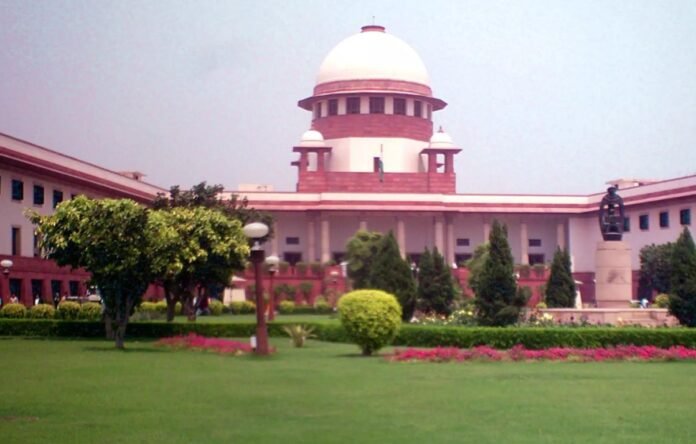The Supreme Court has raised concerns over the misuse of environmental activism to obstruct development projects, suggesting that some NGOs might be acting on behalf of losing bidders or external entities to stall India’s progress, as reported in TOI. The court made this observation while rejecting a plea against a floating solar power project at Jayakwadi Dam in Maharashtra.
Court Dismisses NGO’s Objection
A bench of Justices Surya Kant and N Kotiswar Singh dismissed the appeal filed by ‘Kahar Samaj Panch Committee’ against the National Green Tribunal’s (NGT) approval of the project by Tehri Hydro Development Corporation (THDC). The judges were firm in their stance, stating, “Even an environment-friendly solar power project was being questioned in the guise of saving the environment.”THDC, a government-run entity, had initiated a tender to set up a floating solar power plant at Jayakwadi Dam. The dam, an earthen structure on the Godavari River in Sambhaji Nagar district, had been declared a bird sanctuary and eco-sensitive zone by the Ministry of Environment, Forest and Climate Change. The NGO argued that the project would harm local biodiversity and disrupt birdlife.
NGT’s Scrutiny and NGO’s Weak Arguments
The Supreme Court noted that the NGO had rushed to the NGT as soon as the tender was issued, claiming that the solar project would harm the sanctuary. However, the NGT, after examining responses from the ministry, upheld the government’s policy of promoting solar energy. It repeatedly asked the NGO, “Whether there existed a law that barred setting up of a floating solar power project in an eco-sensitive zone?” but the NGO could not provide a clear answer.The tribunal also pointed out that the NGO failed to specify whether the floating solar project even fell within the eco-sensitive zone of the sanctuary. With no legal foundation for the challenge, the NGT dismissed the case, and the Supreme Court upheld that decision.
Concern Over NGOs With Hidden Agendas
The court acknowledged the role of genuine environmental organisations but warned against a rising trend where rival bidders or vested interests use NGOs as a front to obstruct development projects. “It has become a practice with rivals of project proponents to set up NGOs and challenge projects on the ground that it would cause irreparable harm to the environment,” the bench observed.The judgment underscores a growing concern over the credibility of environmental litigation in India. While real ecological challenges must be addressed, the Supreme Court’s verdict signals a pushback against frivolous objections that slow down crucial infrastructure growth.
(With inputs from TOI)



